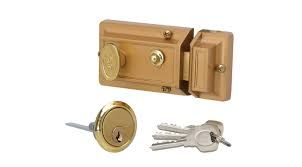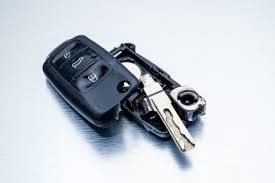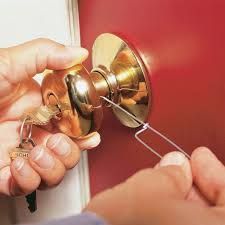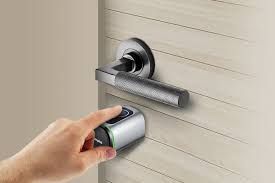What Does an Emergency Locksmith Do? Understanding Their Role and Services
Life is full of unexpected moments, and one of the most inconvenient surprises can be finding yourself locked out of your car, home, or office. When these situations arise, an emergency locksmith is your go-to professional to quickly and efficiently resolve your lock-related problems. But what exactly does an emergency locksmith do, and why are their services so crucial? In this article, we’ll take a deep dive into the world of emergency locksmiths, explaining their role, the services they offer, common causes that require their expertise, the risks involved, and practical recommendations on when to call them.
Understanding the function of an emergency locksmith is more than just knowing they can unlock a door. It's about recognizing how they can provide you with peace of mind during stressful situations and prevent further complications. So, let's explore the ins and outs of emergency locksmith services in greater detail.
If Nearly All Locks Can Be Picked, Why Do We Still Use Them
What is an Emergency Locksmith?
An emergency locksmith is a trained professional who specializes in responding to urgent situations involving locks, keys, and security systems. Unlike standard locksmiths who may focus on scheduled, routine services such as installing locks or creating duplicate keys, emergency locksmiths operate primarily in urgent situations. Whether it’s a car lockout at night, a broken lock preventing you from entering your home, or needing a key replacement after losing it, emergency locksmiths are available around the clock to help.
Emergency locksmith services are designed to address situations where time is of the essence. These professionals are skilled in handling a wide range of lock-related issues, offering fast and reliable solutions to help you get back to your routine.
Common Situations Requiring an Emergency Locksmith
Several common scenarios might require you to contact an emergency locksmith. These situations are typically unexpected and often occur when you least expect them, making timely professional assistance essential.
1. Locked Out of Your Home, Office, or Car
Perhaps the most well-known reason people call an emergency locksmith is because they’ve locked themselves out. Whether you’ve misplaced your keys, broken your key inside the lock, or left your keys on the wrong side of the door, being locked out can cause major disruptions. Emergency locksmiths specialize in gaining entry to homes, offices, and vehicles without causing damage to the lock or door.
For instance, if you’re returning home late at night and realize your house keys are missing, an emergency locksmith can quickly respond to unlock your door, allowing you to regain access.
2. Lost or Stolen Keys
Losing your keys can be incredibly frustrating, especially if they are for important or secure places. The situation becomes even more urgent if your keys are stolen. In cases like these, an emergency locksmith can help by rekeying the lock or replacing the lost or stolen keys to ensure that unauthorized people cannot gain access.
Let’s say you lost your office keys, and you’re unsure whether they fell out of your pocket or were taken. An emergency locksmith can arrive promptly to rekey the lock or replace the affected locks, protecting your office’s security.
3. Broken or Jammed Locks
Locks, like any mechanical system, wear out over time. A jammed or broken lock can be a significant issue, especially if it prevents you from locking your door or securing your property. Emergency locksmiths are equipped with the tools and expertise to repair, replace, or rekey broken locks efficiently, restoring your security as soon as possible.
Imagine coming home after a long day, only to discover that your front door’s lock is jammed and you can’t get inside. In this case, an emergency locksmith can fix the issue, allowing you to enter your home and secure it properly again.
4. Burglary or Break-In Attempts
If you’ve experienced a break-in or suspect someone tried to force their way into your property, an emergency locksmith can quickly assess the damage and repair or replace the locks. This is an essential service, as it ensures that your home or business is properly secured after a security breach. Locksmiths will also provide you with advice on how to prevent future break-ins by upgrading your security system.
For example, if your back door lock was broken during an attempted break-in, an emergency locksmith will replace it and reinforce the security of your property, offering suggestions for better locks or additional security measures.
Services Offered by Emergency Locksmiths
Emergency locksmiths offer a range of services designed to resolve urgent lock and key problems. These professionals are equipped with the necessary tools and training to handle almost any situation related to locks. Here’s an overview of the key services they provide.
1. Lockout Services
As mentioned earlier, one of the most common services offered by emergency locksmiths is lockout assistance. Whether you're locked out of your home, office, or car, they will have the tools and expertise to unlock the door without causing damage. Locksmiths use specialized methods such as lock picking, bumping, or bypass techniques to quickly and safely unlock your property.
2. Key Duplication and Replacement
When you've lost your keys or need an extra set, emergency locksmiths can create duplicate keys on the spot. They can also replace lost or stolen keys, ensuring that you don’t have to worry about anyone using your old keys to gain unauthorized access.
3. Rekeying Services
Rekeying is an effective way to ensure that your old keys no longer work in your locks. This is particularly useful if you’ve lost your keys or had them stolen. Rather than replacing the entire lock, rekeying only involves changing the internal components of the lock so it fits a new key.
4. Lock Repair and Installation
Emergency locksmiths are capable of repairing broken locks and installing new ones. Whether it’s a jammed lock or a faulty deadbolt, they can fix or replace it to restore the security of your home or office. They can also advise on upgrading to more secure or modern locking systems, such as digital or smart locks.
5. Security System Upgrades
Some locksmiths specialize in upgrading your entire security system, especially if you’ve recently experienced a break-in. From high-security locks to surveillance cameras, locksmiths can help you boost your home’s security, ensuring that you’re better protected in the future.
Risks Involved in Lock-Related Emergencies
While emergency locksmiths are highly skilled professionals, there are some risks associated with lock emergencies that you should be aware of. Understanding these risks can help you take the necessary precautions and ensure your home, business, and vehicles remain secure.
1. Damage to the Lock or Door
Although emergency locksmiths are trained to avoid damage, there’s always a slight risk that the lock or door may be damaged during the unlocking process. This is especially true for older locks or those that have already been compromised. However, by hiring a skilled locksmith, you can minimize the chances of unnecessary damage.
2. Security Risks
In some cases, if locks or keys are not handled properly during an emergency, there could be a potential security risk. For example, leaving your door unlocked after the locksmith completes their work or forgetting to rekey your locks after losing your keys can make your property vulnerable.
Expert Recommendations for Preventive Measures
While emergency locksmith services are essential in a pinch, prevention is always better than cure. Here are some expert recommendations to help you avoid lock-related emergencies in the future.
1. Regular Lock Maintenance
Regularly maintaining your locks can help prevent malfunctions. If you notice your lock is becoming stiff or difficult to turn, it’s best to have it inspected by a locksmith before it completely fails. Lubricating your locks and checking for wear and tear can save you from an unexpected emergency.
2. Keep Spare Keys in Safe Locations
To avoid getting locked out, it’s a good idea to keep spare keys in safe, easily accessible places. For example, consider giving a trusted neighbor or friend a spare key, or using a secure lockbox for safekeeping.
3. Upgrade to Smart Locks
Consider upgrading to smart locks that allow keyless entry. These modern locks can be opened remotely through an app or by using a key code, reducing the chances of getting locked out. They also offer enhanced security features, such as automatic locking and alerts when the door is unlocked.
Conclusion: Why Emergency Locksmiths Are Essential
Emergency locksmiths provide a crucial service that can make all the difference in stressful situations. Whether you're locked out of your home, car, or office, these professionals are equipped to handle a variety of lock-related emergencies efficiently and effectively. They offer more than just unlocking doors—they provide solutions for lost keys, broken locks, rekeying, and upgrading security systems.
Understanding the services emergency locksmiths provide, the potential risks involved, and the preventive measures you can take will ensure you’re better prepared in case of a lock emergency. Remember, an emergency locksmith is there when you need them most, offering peace of mind and reliable solutions when you're in a bind.
Call Us Any Time!








